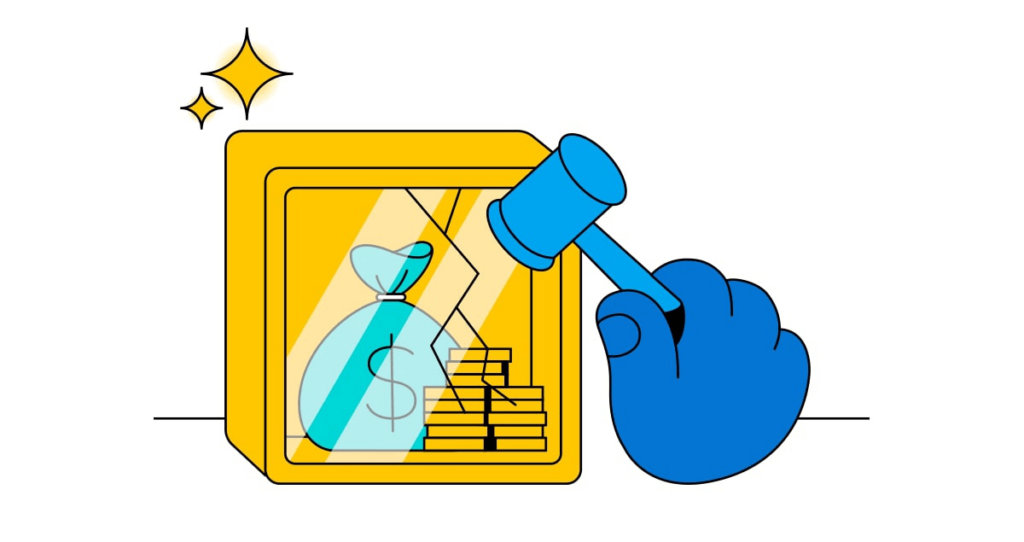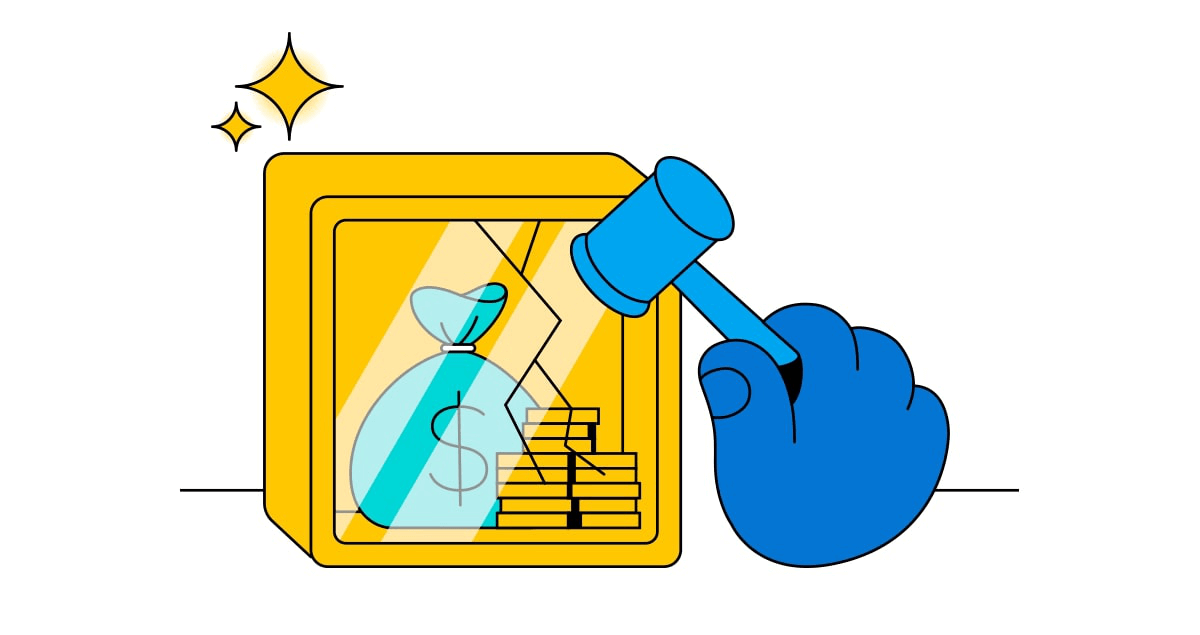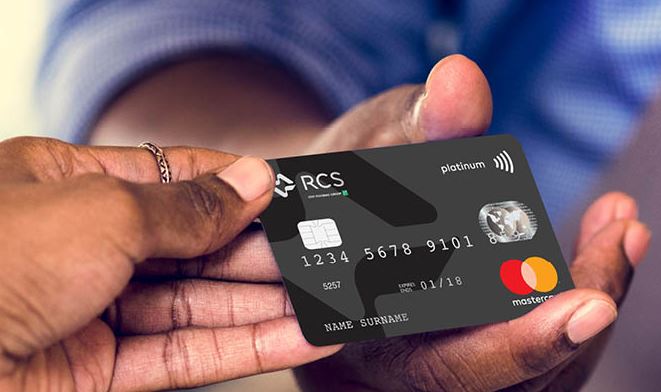In a world where uncertainty is a constant, an emergency fund stands as a fundamental financial pillar to tackle the toughest challenges.
All of us, at some point, encounter unexpected situations capable of profoundly shaking our finances: be it a sudden job loss, an unforeseen illness demanding unexpected medical expenses, or even a domestic emergency requiring immediate financial resources.
It is precisely in these moments of adversity that the true importance of an emergency fund reveals itself, presenting as a financial safety net that empowers us to face such challenges without compromising our long-term economic well-being.

Why Save Money for an Emergency Fund?
Saving money for an emergency fund is not just a precautionary measure but a smart strategy to ensure financial stability. Here are some reasons why it is crucial:
1. Protection against Unexpected Events:
Financial emergencies are like lightning bolts in a clear sky – they can happen at any moment, without warning. Having an emergency fund is like having an umbrella on a rainy day: you are prepared to face any financial setback that arises.
This reserve is a safety cushion that offers peace of mind in the face of unexpected expenses, whether they are related to car repairs, unexpected medical bills, housing expenses, or any other unforeseen circumstance that may arise. Imagine yourself driving to work on a typical morning when your car starts making a strange noise.
Without an emergency fund, you could find yourself in significant financial trouble dealing with the unexpected cost of a repair. However, with a well-stocked emergency fund, you can face this situation calmly, knowing that you have the necessary resources on hand to cover expenses without compromising your long-term finances.
In short, an emergency fund is not just a financial precaution – it is a shield against life’s uncertainties that allows us to navigate storms safely and confidently.
2. Reduction of Financial Stress:
Financial stress can be overwhelming, especially when we are blindsided by unexpected expenses. It’s like being in a boat during a storm without a rudder – you feel lost and powerless in the face of waves of worry.
However, an emergency fund acts as the rudder of your financial boat, providing a sense of control and direction even in the most turbulent times. By having an emergency fund, you don’t need to panic or despair when facing unexpected financial challenges.
Instead, you can focus on finding solutions and addressing the situation proactively, knowing that you have a financial cushion to soften the impact.
Whether it’s an unexpected medical expense, an unforeseen home repair, or any other financial setback, an emergency fund offers a sense of security and stability that is invaluable when navigating the turbulent waters of financial life.
3. Debt Avoidance:
The debt cycle is like an endless maze – once you enter, it can be difficult to find your way back to financial stability.
Many people turn to loans or credit cards to cover unexpected expenses, but this can be a dangerous trap that leads to a downward spiral of increasing debt and exorbitant interest rates. However, an emergency fund acts as a protective barrier against this cycle of indebtedness.
By having a significant reserve fund, you eliminate the need to resort to loans or credit cards to cover financial emergencies. This not only protects your finances in the short term, avoiding burdensome debts, but also preserves your long-term financial health, allowing you to maintain a strong and stable position even in the face of unforeseen financial challenges.
Ultimately, an emergency fund not only protects against present difficulties but also lays the groundwork for a secure and prosperous financial future.
Practical Tips for Building an Emergency Fund:
Now that we understand the importance of having an emergency fund, let’s discuss some practical tips for creating and maintaining one:
1. Set an Initial Goal: Begin by setting a realistic goal for your emergency fund. Experts typically recommend saving the equivalent of three to six months’ worth of basic expenses. However, this may vary depending on your financial situation and personal needs.
2. Create a Budget: To reach your savings goal, it’s essential to have a solid budget in place. This will help identify areas where you can cut expenses and increase your savings.
3. Automate Your Savings: Set up an automatic transfer to your emergency fund account every time you receive your paycheck. This makes the saving process easier and more consistent.
4. Keep Your Fund Accessible**: While the idea of an emergency fund is not to touch it, it’s important that the money is accessible when needed. A savings account or a checking account with easy access are ideal options.
5. Replenish Your Fund: If you need to use part of your emergency fund, don’t forget to replenish it as soon as possible. This will ensure that you’re always prepared for future emergencies.
Advantages of Having an Emergency Fund:
In addition to providing financial security, an emergency fund offers a variety of crucial advantages that are essential for long-term economic well-being:
Enhanced Peace of Mind:
The sense of tranquility provided by an emergency fund is unparalleled. Knowing that you have a solid financial safety net allows you to face financial challenges with renewed confidence. This means that even in the face of unexpected adversities, such as a health crisis or job loss, you can confront them calmly, knowing you have resources available to address them. This peace of mind is invaluable and allows you to focus on finding effective solutions rather than constantly worrying about financial matters.
Financial Flexibility for Times of Uncertainty:
An emergency fund provides essential financial flexibility to deal with sudden and unexpected changes in your life circumstances. Whether facing a salary reduction, unforeseen medical expenses, or a family emergency, having a solid financial reserve allows you to adapt quickly to these changes without compromising your standard of living or resorting to extreme measures such as high-interest loans. This flexibility provides a sense of control over your financial situation, ensuring you can navigate life’s turbulent waters more easily.
Protection against the Debt Cycle:
One of the biggest financial pitfalls many people face in times of crisis is the debt cycle. When confronted with unexpected expenses, many turn to loans or credit cards to cover costs, leading to a spiral of debt with high-interest rates. However, by having a well-established emergency fund, you can avoid this financial trap. Instead of resorting to loans, you can use your reserve to cover immediate expenses, protecting your credit score and avoiding the accumulation of harmful debts. This not only preserves your long-term financial health but also provides a sense of security and stability.
In summary, an emergency fund is much more than just a financial precaution; it is an essential tool to ensure economic stability and emotional well-being in the face of unforeseen circumstances. By following practical tips and cultivating financial discipline, you can build a safety net that offers not only peace of mind but also the ability to thrive even in the most challenging adversities. Remember: it’s better to be prepared than to regret, and it’s never too late to start building your emergency fund.






